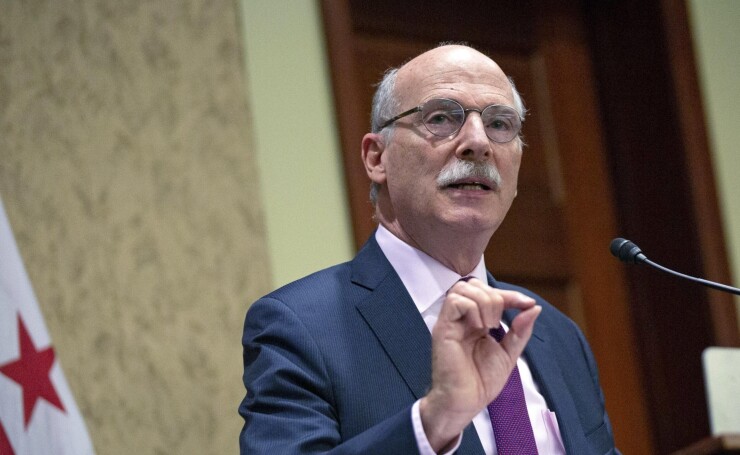
Washington, D.C., City Council Chair Phil Mendelson is currently not on board with Mayor Muriel Bowser's plan to use public funds to rebuild RFK Memorial Stadium and a surrounding multi-use development, citing the location's limited potential.
"I have never thought that a football stadium is the way you attract a grocery store," said Mendelson.
"When the city was considering the Nationals ballpark, we did look at the RFK site as a potential site for a baseball stadium and it was rejected. It was felt it wasn't a good site because there wouldn't be economic development around it."
The Chairman's opinion, which is shared by five other Council members is in direct opposition to Bowser's contention that rehabbing the stadium will lure the NFL's Washington Commanders back to the city and kick off a wave of private investment.
"The RFK campus is a field of opportunities," she said in a statement released last Friday.
"Our vision is to work with the Commanders to jumpstart the development of the site. Bringing in this type of partner, sometimes referred to as an anchor tenant, is often a key part of what makes a development project work."
The future of the 64-year-old stadium and surrounding 174-acre site began new chapter in early January when the jurisdiction of the land was transferred from the federal government to the District of Columbia via a last-minute act of Congress.
The city has a strong track record of bond issuance to support its major league sports teams.
In
Nationals Park, home to the Major League Baseball Washington Nationals was built from scratch in 2008 for a total cost of $783.5 million which included $535 million in municipal bonds.
The mayor's vision includes a mixed-use campus that combines a new stadium with commercial and residential development surrounding it, which embraces new ways of thinking about financing sports facilities.
As stadium and arena development have become more expensive and complex, bonds are often used in combination with funding from private equity sources, teams owners and
Local governments and team owners have a long history of dodging taxes associated with sports facilities by leveraging tax-exempt munis and amortizing the costs of team ownership.
As Congress searches for ways to raise revenue, the Trump administration has signaled a desire to end "special tax breaks for sports team owners."
A 50-page list circulating in Congress targets ending the tax-exempt status of municipal bonds has proponents
"For almost forty years Congress and occasionally the administration have been trying to eliminate tax-exemption on stadium financing," said David Abrams, an investment banker with Inner Circle Sports.
"There have been incremental changes to the process but not a complete ban. There are several projects that got done by municipalities but are taxable."





